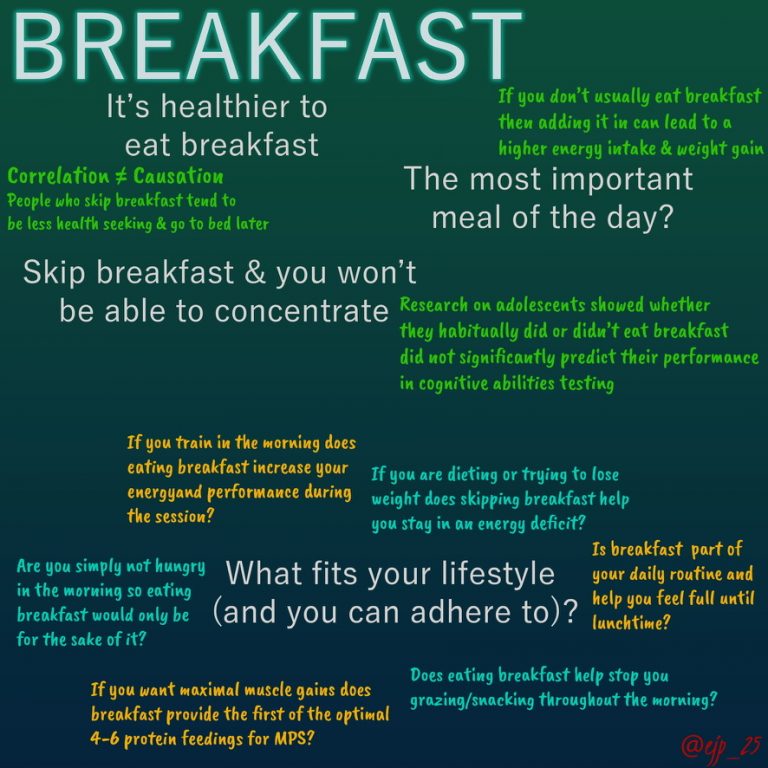Breakfast
If you like eating breakfast then have it. If you don’t, then skip it 🤷🏼♀️. There is lots of conflicting advice on what is often referred to as “the most important meal of the day”. That term is just one of those sayings that has been around for so long we take it for granted. However it doesn’t seem to have an actual foundation.
Research
A lot of nutritional research is from observational studies. It’s important to note from that a lot of the results show associations, rather than cause and effect. On studies specifically looking at breakfast (both observational or RCT’s) the conclusions are quite mixed too – here are a couple of examples:
One study* where participants in a deficit consumed either 70% of their intake in the AM, or 70% in the PM, showed that both groups lost weight. However while the AM group lost more weight overall, the PM group lost more fat and less fat free mass. This would suggest eating more at night may have some benefit rather than eating more earlier in the day. Especially for body composition.
Another study** front or back loaded the energy intake (700kcal breakfast, 500kcal lunch & 200kcal dinner vs. a 200/500/700 day split) and this time the larger breakfast group was the one which lost more weight, as well as having greater improvements in various health markers. This study noted compliance was an important factor in the results.
That’s what it tends to come back to. The most important consideration will be energy balance and adherence. If breakfast fits into your diet and you prefer it – eat it! If it doesn’t, skip it. There’s no right or wrong diet (or diet pattern) that works for everyone. What works for your individual needs and preferences?
(Reposted from Instagram)
*Keim et al 1997
**Jakubowicz et al. 2013


